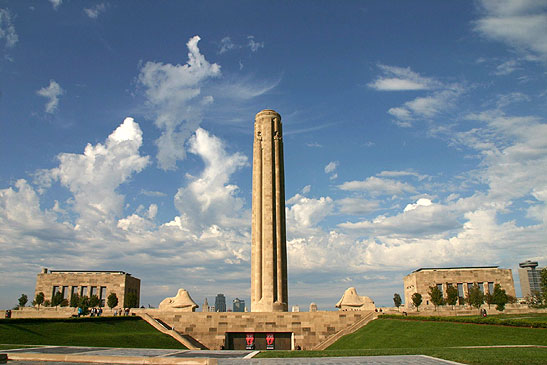04 November 2010
The African Roots of the Blues
24 September 2010
Professor James Robertson(History) Hosts a Seminar at Temple
Professor LaMonica(History) Attends Conference in Kansas City
Professor Jeffrey LaMonica(History) attended the joint National Seminar of the Western Front Association and the Great War Society at the National World War I Museum in Kansas City, MO on 10 and 11 September. The seminar was entitled The Men and Women of the Great War. Presentation topics included, US Army officer training for African-Americans, US Army Nurses in Europe, and the Austro-Hungarian Army. LaMonica serves as secretary of the Western Front Association.
Professor Bohm(Sociology) Attends Conference on Racism
02 July 2010
LaMonica(History) Attends WWI Seminar
 Professor LaMonica poses with the Five of Hearts, a Renault FT-17 tank used by the US Army in World War One on display at the Fort Meade Museum
Professor LaMonica poses with the Five of Hearts, a Renault FT-17 tank used by the US Army in World War One on display at the Fort Meade Museum04 May 2010
Human Service Associate Degree Program Growing in spring 2010
The Department of Public Service and Social Science began the fall semester by unveiling their newest degree option: an Associate Degree in Human Services. Currently there are students enrolled in new Human Service courses, like Foundations of Addictions, Human Sexuality and Theories of Counseling.
Authentic learning opportunities abound when students embrace active, unique and creative approaches to the course content as some students did this semester in Kathy Schank’s Theories of Counseling class. The students formed small groups and were assigned to complete research on different conditions that may lead someone to seek help from a psychotherapist. Students then developed role plays to present for the class that were based on their research findings on topics like anxiety, depression and bereavement. The students were videotaped acting their role play scripts in front of the class.
The students were recently polled about their experience with this assignment and they reported that the information they are learning from the textbook is interesting but this assignment enabled them to directly engage in some of the situations that they may one day encounter as therapists. Students stated that the role plays enabled them to creatively apply techniques from different types of therapy that they had only read before, thereby putting the textbook concepts into action. Some students wrote scripts that were open ended, giving them the ability to really feel the client’s emotions, as one student stated: “I really felt that the client (fellow student actor) pushed my buttons” just as can happen in an actual therapy session. Students also stated that they felt supported by their classmates, as they are all highly interested and engaged in learning the content of the course. They also found this to be a very good fit with the knowledge they bring from their other human service, psychology and sociology courses.
DCCC uses a competency based curriculum model that defines the skills and knowledge expected of our graduates. One of the goals of this assignment was to achieve objectives relating this course content to the college competencies. In particular, College Competency 3 which focuses on career choice and exploration and College Competency 5 where students learn how to use decision making processes to solve problems. These students are now better able to recognize the challenges that we all experience as we struggle with serious life issues and the value of therapy as a solution to our problems. As they advance their knowledge and successfully complete this course their hope is to help to decrease the stigma that seeking therapy stills holds.
Submitted by: Kathy Schank, MSS, LCSW, BCD
23 April 2010
Scholarly Reflections of Africa
 Dr. Ife Williams(Political Science) discussed her attendance at
Dr. Ife Williams(Political Science) discussed her attendance atthe World Conference Against Racism in Durban, South Africa
 Shelia Santoro talked about visiting her daughter in Tanzania
Shelia Santoro talked about visiting her daughter in Tanzania DCCC student Kelly Brennan described her study abroad experience in Egypt
DCCC student Kelly Brennan described her study abroad experience in EgyptAir Power in World War I

The DCCC Student History Club held a seminar on Air Power in World War I by Steven Suddaby, editor of French Strategic and Tactical Bombardment Forces of World War I on 9 March. Suddaby spoke about the history and development of aircraft, how aircraft changed war tactics, and how aircraft was a crucial part of the Allied victory in the Great War.
Suddaby presented images of kite balloons used to observe enemy lines miles away. He explained how balloons were tethered to the ground with ropes and sent Morse code through cable lines. Balloon crews directed the fire of artillery batteries on the ground.
Airplanes were originally used to take aerial photos of enemy territory. Suddaby explained how this set off the development of camouflage. Ground forces threw nets over railways and built wooden vehicles to fool enemy observation planes.
Suddaby talked about the development of aviation in ground and naval tactics. Naval observation aircraft helped Allied navies overcome the German submarine threat.
Suddaby concluded that aviation had a substantial impact on the outcome of World War I and dictated how armies and navies fought future wars.
05 April 2010
Adriana Bohm(Sociology)
24 January 2010
07 January 2010
Jeff Salavitabar (Business)
Jeff Salavitabar (Business) hosted Business Survival: Tough Economic Times with Ed Herr on 9 April 2009.









